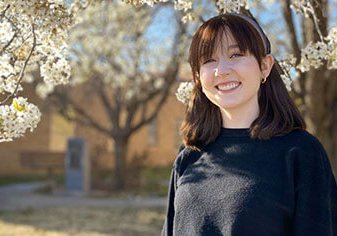The Global Trade Analysis Project’s (GTAP) 23rd Annual Global Conference looked significantly different this year than its past 22 iterations. Since its inception, the conference has been held in different locations around the world, from Warsaw, Poland to Addis Ababa, Ethiopia. The conference continued to draw people from throughout the world this year as GTAP hosted its annual conference online.
Established in 1993 at Purdue University, GTAP furthers collaboration between academics, researchers and policymakers working on issues impacting the global economy, such as trade and climate change. Its central objective is to enhance quantitative analysis of global economic issues within an economy-wide framework.
This year’s GTAP conference was originally scheduled to take place in Tokyo, Japan from June 17-19. Instead of canceling or postponing the conference, organizers decided to move ahead with a virtual conference.
Dominique van der Mensbrugghe, Purdue research professor of agricultural economics and GTAP director, said despite some initial technical difficulties, the conference went very well and saw record attendance with participation from areas of the world usually underrepresented at the annual event.
“Clearly we reached many policymakers and researchers who have been unable to attend in the past,” van der Mensbrugghe said. “For example, we had a note from an economist from the Ministry of Finance in Lilongwe, Malawi. It is too early to judge the long-term impact, but we anticipate that this will lead to new research directions and more cross-country collaboration.”
Carmen Estrades, associate professor of economics at Universidad de la Republica in Montevideo, Uruguay, who has attended several past GTAP conferences, said she missed the opportunity to talk informally one-on-one with other participants, but she appreciated that many researchers were able to attend for the first time. While she hopes the conference returns to an in-person event for next year, she also said incorporating a live-virtual option might be beneficial.
“I would not drop entirely the standard conference format, which ensures a close exchange among participants. That is key for our work. I think that trying to incorporate live online presentation would increase the visibility of presentations as well as the participants' turnout,” Estrades continued. “As a university teacher, I have taught classes that were at the same time presented online, so it would be something doable. The conference is quite expensive for researchers in developing countries. So if a virtual option is introduced, more researchers from those regions could join.”
Some sessions from the GTAP 2020 conference can be viewed here: https://www.youtube.com/channel/UCoh9OmcYvjYXAujJ6EW7V_Q.
This was the seventh GTAP conference for Zornitsa Kutlina-Dimitrova, senior economist with the Chief Trade Economist Unit of the European Commission. While she is also eagerly anticipating an in-person gathering next year, she said it was important not to miss out on the opportunity to hear from and discuss current economic trends with researchers around the globe, especially with economies so in flux due to COVID-19.
Estrades said GTAP always offers the most valuable resources for researchers conducting global analysis. “The database is, in my opinion, the most important one, and for that reason I think it is of great importance that it has the most up to date information. The recent efforts of updating the database more often than before are greatly appreciated. Other valuable resources are the different versions of the GTAP model, as well as the Journal of Global Economic Analysis.”
Van der Mensbrugghe said, the response from attendees has been overwhelmingly positive and organizers are considering altering the conference’s format going forward.
“We need to find a way to combine the extra value from a physical meeting and the outreach of the online meeting. Of course, there is no way to replace the networking provided by a physical meeting—the discussions at coffee breaks, and the other opportunities for informal meetings,” he continued. “As we plan the next meeting to be held at Colorado State University in Fort Collins, we will be looking for ways to increase the scope of our outreach.”
Celebrate National Dairy Month with homemade ice cream
“Dairy farmers work tirelessly every day–not only to feed their own families but to feed yours as well…Producing milk for the world promotes good nutrition, creates sources of income and increases food security,” explained Kylei Klein, a senior studying agricultural education at Purdue. “I’m amazed when I think about how farmers are willing to work that hard for me when they don’t even know who I am.”
Read Full Story >>>From the lab to the laptop: How College of Agriculture professors are pivoting to virtual classrooms
In many ways, attending in-person university lectures is a great equalizer, John “Barny” Dunning, Forestry and Natural Resources (FNR) professor observed.
“In the face-to-face format, I get three chances a week to remind students of critical deadlines, upcoming activities and impart crucial information. Of course, students don’t get that information if they don’t come to class, but then it is their fault,” Dunning said.
Read Full Story >>>

